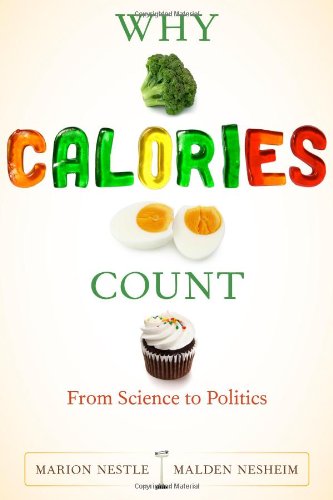
Why Calories Count
From Science to Politics
کتاب های مرتبط
- اطلاعات
- نقد و بررسی
- دیدگاه کاربران
نقد و بررسی

January 15, 2012
Nestle (Nutrition, Food Studies, and Public Health/New York Univ.; Pet Food Politics, 2008, etc.) and Nesheim (Nutritional Sciences, Emeritus/Cornell Univ.; co-author, with Nestle: Feed Your Pet Right, 2010, etc.) explore "calories in all their dimensions--personal, scientific, and political." Calories are abstract--"they cannot be seen, smelled, or tasted, and their biological functions are difficult for most people to grasp." In the early chapters, the authors discuss the discovery of calories and their measurement, but these sections feel like a slog through the basement of an old natural-history museum. The remaining chapters read better, especially when the authors step away from their data-rich analysis and voice their concerns. Nestle and Nesheim devote several chapters to the physiological and political implications of inadequate calories, then introduce obesity and factors that conspire to prevent us from losing or maintaining weight. The human body does a great job of ensuring that it gets enough calories "but it is much less effective at knowing when calories are in excess." The messages we receive about food often overpower our biophysical mechanisms to limit eating. In the final section, the authors examine the politics of calories. They argue that inadvertent responses to greater food production and competition in the food industry strongly promote the overconsumption of calories, including changes that "encourage eating in more places at more times of day in larger portions." They also argue that the cause of today's obesity trend is not less physical activity, as exercise rates have stayed the same since 1980. A strong, rigorous overview of the calorie, its regulation and the politics behind food labeling and marketing.
COPYRIGHT(2012) Kirkus Reviews, ALL RIGHTS RESERVED.

February 1, 2012
Neither a diet nor a weight-loss book, this scholarly, seriously researched work assists readers in evaluating diet claims, formulating strategies to lose, gain, or maintain weight, and learning how to make healthy food choices. Nestle (Paulette Goddard Professor of Nutrition, Food Studies, & Public Health, New York Univ.) and Nesheim (nutrition, emeritus, Cornell Univ.) focus on the history of the calorie and its relationship to body weight, the science behind metabolism, how to estimate calories in a given portion, and--what will probably be of most interest to the general reader--the role of big business in creating calorie-laden food and why it's less politically controversial to recommend exercising than cutting back on calories. VERDICT Readers who appreciate the book's scientifically grounded and historic approach to understanding calories will find value here, although it's not easy reading. Libraries that own Gary Taubes's Why We Get Fat: And What To Do About It may want to supplement it with this title because of the books' differing viewpoints.--Martha Stone, Treadwell Lib., Boston
Copyright 2012 Library Journal, LLC Used with permission.

























دیدگاه کاربران